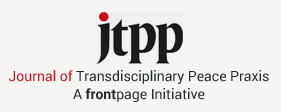Description
Online Buying Price: £ 13.95; INR 395; $ 18.95
This book captures a stage in the history of the struggle for human rights. The collection of essays encapsulates hopes and critiques of young activists from Armenia, Austria, Brazil, Cambodia, Costa Rica, Egypt, Italy, Kenya, Laos, Macedonia, Philippines, Uganda, United Kingdom, United States of America, and Venezuela, who are passionately engaged in fostering a world where more people can access human rights.
Collectively, these articles tell us about contemporary understandings of who is considered to be human, who should have access to rights, what these rights are, and which entities are to be held responsible for ensuring all people have access to human rights.
The discourse reflects its concern with the state of the world where interstate conflicts have not lessened, where, the range of weapons has indeed increased exponentially, ensuring that people not only experience direct effects of war and conflict, but also indirect repercussions including environmental degradation. Some of these essayists bring the issue of earth-care within the purview of a human rights framework. Equally important, the authors reflect a conceptual trend by bringing issues of food and well-being to the security discourse as well.
What needs to be addressed, and the activists’ views especially on how we should go about attending to these gaps serve as an important marker of how much further we have to travel on this road in our struggle to realise human rights. The assessment of the young activists also tells us how many hopes of the framers of the Universal Declaration of Human Rights, adopted sixty years back, have remained unfulfilled.
Last, but not the least, the essays focus on human rights education, linking socialisation, cultural changes and the realisation of human rights.
Professor Amii Omara-Otunnu, is the UNESCO Chair in Human Rights in the United States of America and Coordinator of UNESCO Chairs in Human Rights in the region that comprises North America, Western Europe and Israel. He is the founder and Executive Director of the Institute of Comparative Human Rights at the University of Connecticut, USA besides being the Executive Director of the UConn-ANC Partnership. Since his student days, Dr Amii Omara-Otunnu has been involved in movements for democracy, human rights, and social justice in pre and post-apartheid South Africa. He has been conferred the Luminary Award by the World Affairs Council for honouring his contribution in global affairs.
Sergio Mobilia, formerly an Associate to the UNESCO Chair & Institute of Comparative Human Rights, University of Connecticut, USA, now works as a senior analyst with Google, Argentina.
Dr Bandana Purkayastha is the Professor & Head, Department of Sociology and Professor, Department of Asian American Studies, University of Connecticut (USA). Educated at Presidency College (India), the University of Massachusetts (USA), and the University of Connecticut, Professor Purkayastha’s current research and publications focus on the intersection of racial ethnicity, gender and class. Her last publication is the critically acclaimed, Negotiating Ethnicity: Second-generation South Asian Americans Traverse a Transnational World (2005, Rutgers University Press, USA). Professor Purkayastha is also the Deputy Editor of the journal Gender and Society (Sage Publications, Inc).






